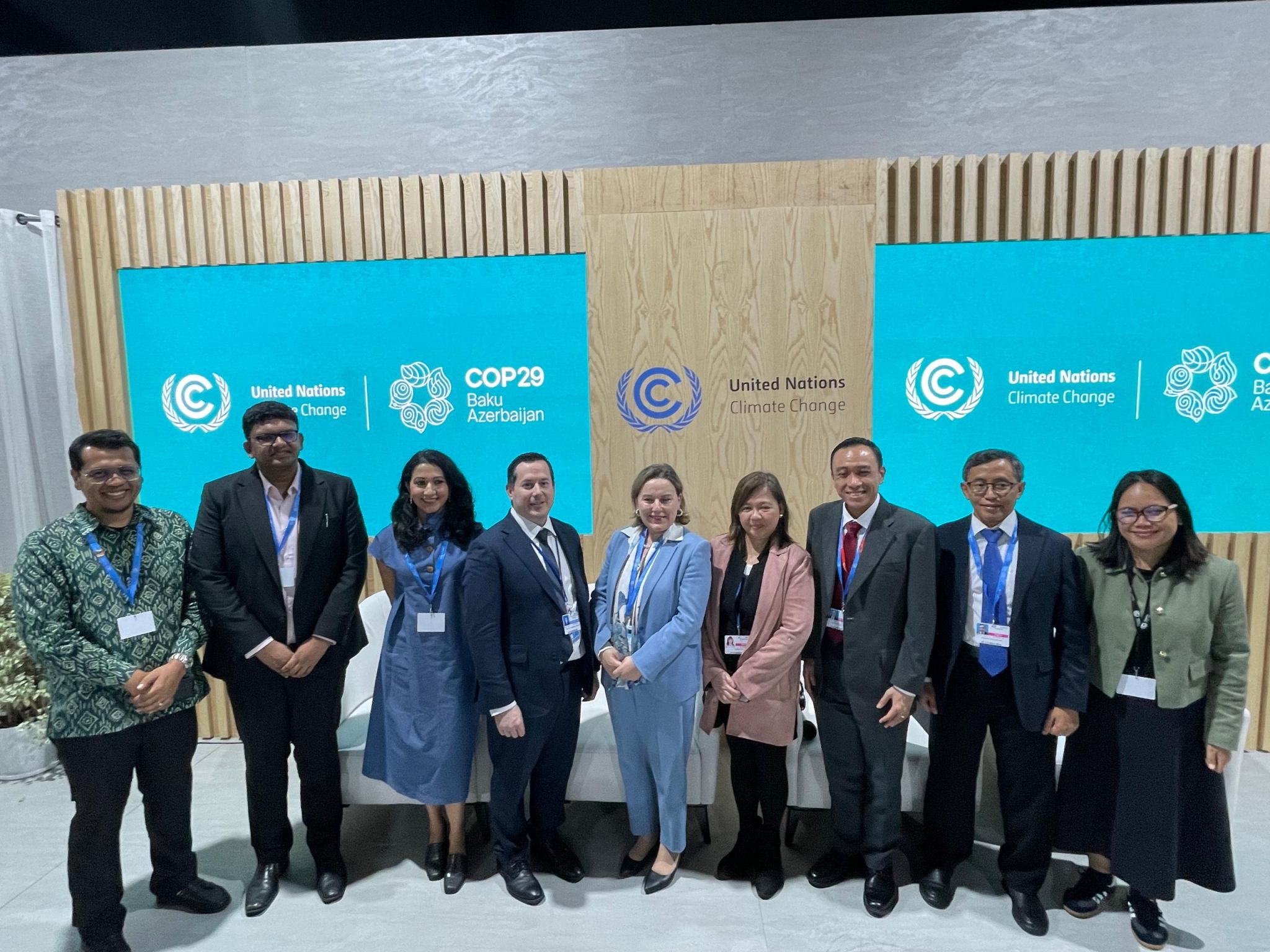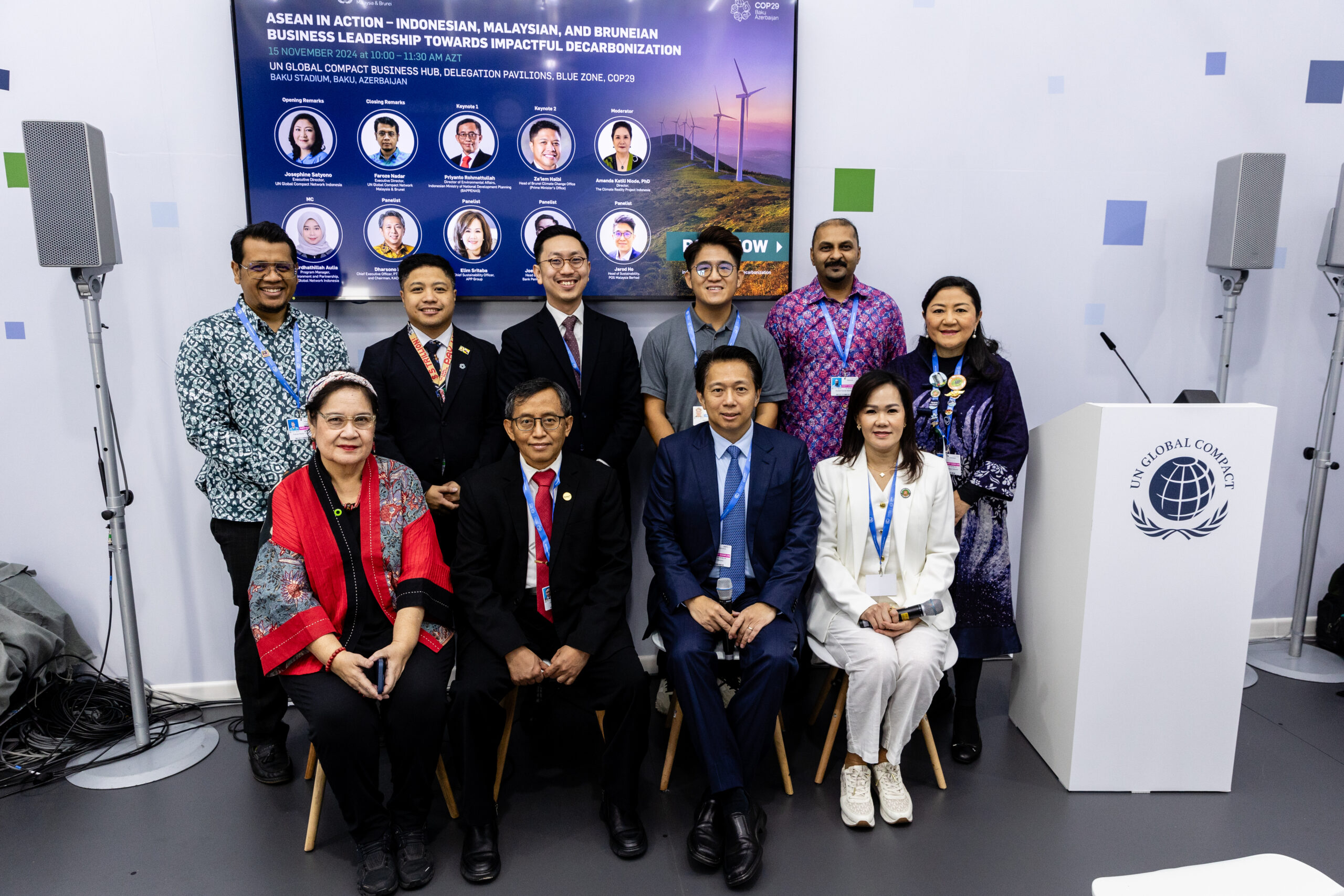Over the past 10 years, there has been growing recognition that preventing business adverse impact on children’s rights is integral to global sustainability and building a fairer, inclusive world. But there is a long way to go before this is systematically implemented.
The Children’s Rights and Business Principles, developed in 2012 and building on the UN Guiding Principles on Business and Human Rights, articulate how the corporate responsibility to respect children’s rights can be implemented in the workplace, the marketplace, the community and the environment.
The SDGs have given impetus to responsible and purposeful business conduct. But business recognition of children’s rights is not yet systematic. Neither responsibility nor purpose can be authentically claimed if businesses do not seek to address the impact of their own conduct on children’s rights—and governments do not establish regulatory regimes that support it.
This is not only a responsibility for individual businesses. It is a structural issue for the business world of businesses, governments, investors and business platforms as a whole.
Ten years ago, few companies carried out assessments to identify their impact on children. A wide set of tools and guidance now exist and are being used.
Companies are looking into their supply chains and at their products and markets to address adverse impact. In an increasingly digital world, recognition of the impact of business on children’s rights has created momentum for responsible technology and social media. Business platforms are taking up children’s rights issues with their members.
There are new forms of governmental legislation around mandatory human rights due diligence, in some countries with explicit child focus though often restricted to child labour. Family-friendly workplace policies and practices are a new focus of business and governmental attention.
Ten years ago, investors were not asking questions about business adverse impact on children’s rights. This is now beginning to change.
CRBP@10: Reflecting a Decade of Advocacy in Indonesia [Event], 10 August 2022
This event was aimed to celebrate the 10th years of CRB Principles advocacy in Indonesia, along with global celebration provided reminders to external stakeholders on how far the businesses have changed and improved child rights but also how challenging and dynamic the progress was.
Together with UNICEF Indonesia, Save the Children Indonesia, Indonesian Child Protection Commission, Pusat Kajian dan Perlindungan Anak, and Asosiasi Perusahaan Sahabat Anak Indonesia, IGCN held CRBP @10, marked a decade of advocacy, meaning time to do reflection through discussion and simple desk review among BCRWG members and network.
The event is parted into 2 sessions for #youth that aims to explore the views and experiences of young people in fulfilling their rights when dealing with the business world and general panel discussion.
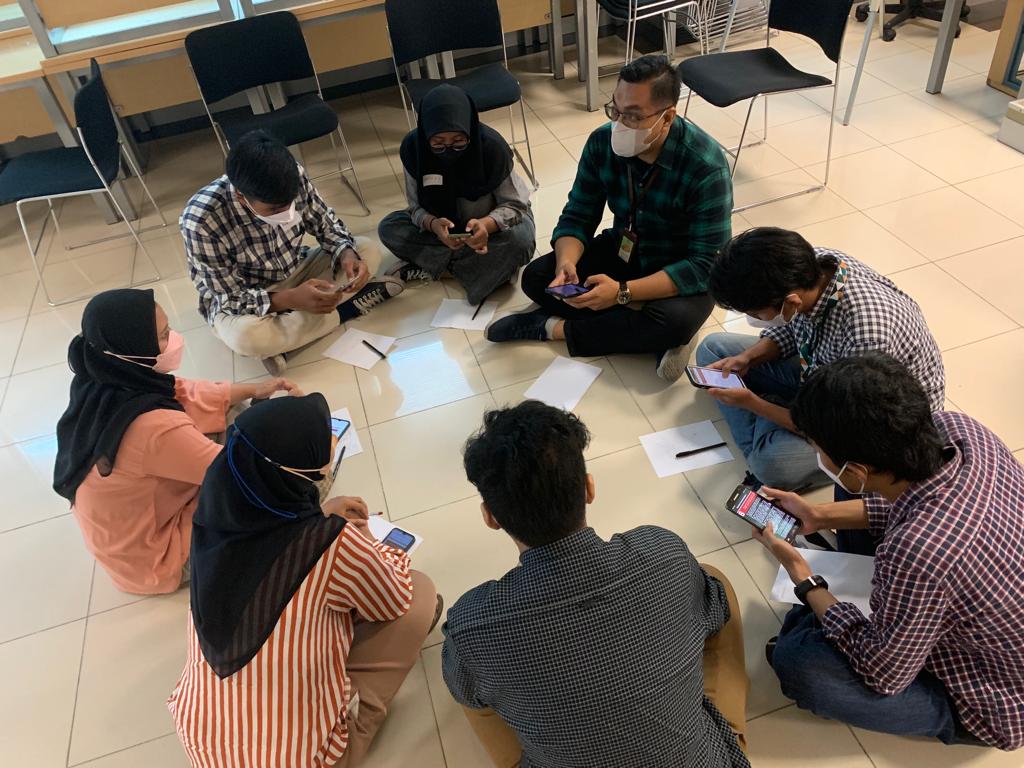
“Business must be aware that they have moral obligations and must participate in supporting the fulfillment of #childrensrights. We must realize that creating child labour-free zone is not an easy task. There are ways of challenges that has to be addressed for the solution before universal pacts are made.” IGCN Executive Director, Josephine Satyono on her opening remarks on the event.
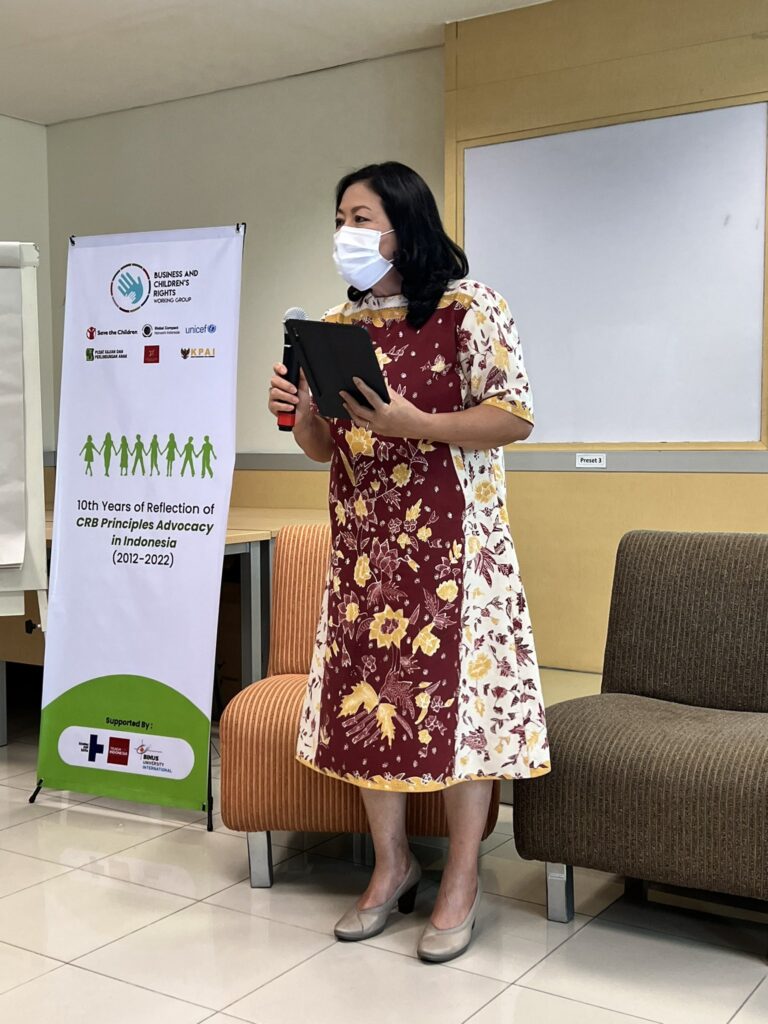
The event’s continued with question and answer and closed with a reflection.
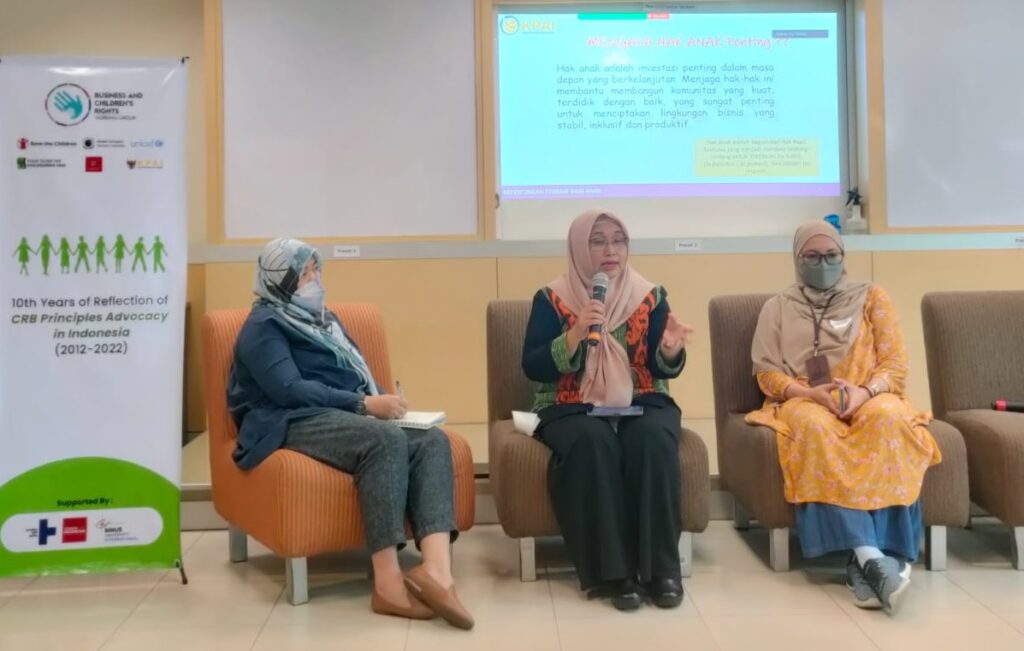
In the 2nd session, after Delivering her opening remarks, Ms. Josephine Satyono explained the findings of “Maternity Leave Implementation Survey”. This survey was conducted on July 15th-19th, 2022 as an integral part of 10th Years of Reflection of CRB Principles Advocacy in Indonesia. 668 respondents took part in this public platform survey which 91.5% of those respondents are middle and senior managements of their respective companies. Right now, IGCN is working on advance analysis on the finding of the survey. The result of this advance analysis will be published next.
For reading the further findings please click: link


